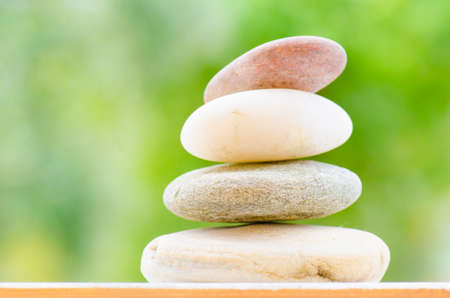Introduction to Energy Healing
In recent years, energy healing has blossomed into a prominent avenue for natural wellbeing across the UK, capturing the curiosity of those looking to restore balance and vitality in a gentle, holistic way. Rooted in ancient traditions from diverse cultures, energy healing works on the principle that the body has its own subtle energy fields which can be nurtured and harmonised. As modern life grows ever more fast-paced, people across Britain are increasingly turning to complementary therapies such as Reiki and chakra balancing to find calm and clarity amidst daily stresses. These practices, once considered niche or alternative, are now gaining recognition for their ability to support emotional equilibrium and physical relaxation. This growing interest reflects not only a shift towards more mindful living but also a desire to reconnect with natural approaches to health and wellness. In this guide, we’ll explore how energy healing has evolved within the UK context, why modalities like Reiki and chakra balancing are becoming household names, and what makes them particularly appealing for those seeking a gentle yet powerful route to enhanced wellbeing.
Understanding Reiki: Technique and Benefits
Reiki, a gentle yet powerful form of energy healing, has gained a steady following across the UK as more people seek natural ways to support their wellbeing. Originating from Japan, Reiki works on the principle that an unseen life force energy flows through us. When this energy is low, we are more likely to feel unwell or stressed; when it is high, we are more capable of feeling happy and healthy.
How Reiki Works
During a typical Reiki session in the UK, a practitioner places their hands lightly on or just above the recipients body in specific positions. The goal is to channel positive energy and encourage balance on physical, emotional, and spiritual levels. Sessions are generally held in calm, soothing environments—often holistic health clinics or dedicated therapy rooms—making it easy for clients to relax fully.
Key Techniques Used in Reiki
| Technique | Description |
|---|---|
| Hand Placement | Hands are gently placed on or near the body along various chakra points. |
| Intuitive Scanning | The practitioner senses areas of imbalance and adjusts hand positions accordingly. |
| Distant Healing | Energy is sent remotely, allowing recipients to benefit from afar—a popular option in UK urban areas. |
Holistic Benefits of Reiki
The benefits of Reiki reported by practitioners and clients in Britain include:
- Reduced stress and anxiety
- Enhanced relaxation and sleep quality
- Relief from minor aches and pains
- A greater sense of clarity and emotional balance
Reiki in British Communities
Across the UK, Reiki is welcomed both as a complementary therapy alongside conventional medicine and as a standalone wellness practice. Many local councils and NHS trusts recognise its value in community health settings. British practitioners often blend traditional Reiki with mindfulness or meditation, reflecting the local culture’s emphasis on holistic self-care. As interest grows, more people are discovering how this natural approach can support their everyday lives—whether in bustling London boroughs or tranquil countryside villages.
![]()
3. Chakra Balancing: Concepts and Methods
Chakra balancing is a gentle, holistic practice rooted in ancient Eastern philosophies that has found a warm welcome within the UK’s growing wellness community. At its heart, chakra energy relates to seven major centres within the body, each thought to govern different aspects of our physical, emotional, and spiritual well-being. When these energy centres—ranging from the root chakra at the base of the spine to the crown chakra atop the head—are in harmony, many believe we experience greater vitality, clarity, and emotional resilience.
Understanding Chakras
The concept of chakras can seem mystical at first, but it simply refers to areas where energy is said to flow or become blocked. In everyday British life, stress, environmental factors, or emotional challenges may disrupt this balance. By tuning into these subtle energies, individuals can cultivate a deeper sense of self-awareness and inner peace—values cherished across UK wellness circles.
Traditional Methods for Harmonising Chakras
There are several time-honoured methods used to harmonise chakras, many of which have been integrated into holistic therapies throughout Britain. Meditation and visualisation exercises are popular tools; these often involve focusing on each chakra and using colour imagery or affirmations to encourage balance. Gentle yoga practices tailored for chakra alignment are also widely embraced in yoga studios from London to Edinburgh. Additionally, sound healing with singing bowls or specific frequencies is increasingly available at wellness retreats across the UK countryside.
Chakra Balancing in UK Wellness Culture
The UK’s approach to chakra balancing blends tradition with modern sensibilities. Many practitioners offer group classes and one-to-one sessions, often creating an inviting space with herbal teas and local botanicals to further promote relaxation. Whether attending a community workshop in Brighton or booking a private session in the Cotswolds, Britons appreciate chakra balancing as a natural complement to daily life—a mindful pause amidst busy routines that supports both body and spirit.
Accessible Practices for Everyday Life
For those wishing to try chakra balancing at home, simple practices such as mindful breathing, guided meditations found on British wellness apps, or even spending quiet moments in nature can be profoundly nurturing. By incorporating these gentle rituals into their routines, many in the UK discover a renewed sense of wellbeing that aligns beautifully with their love for natural health and conscious living.
4. Finding Qualified Practitioners and Centres in the UK
If you are interested in exploring Reiki and chakra balancing, choosing the right practitioner or centre is essential to ensure a safe, supportive, and effective experience. In the UK, there are a variety of holistic centres and individual practitioners offering these energy healing modalities, but it’s important to seek out those with proper training and reputable backgrounds.
Understanding Accreditation
Accreditation is an important consideration when looking for a qualified Reiki practitioner or holistic centre. Reputable practitioners often belong to professional bodies such as the UK Reiki Federation or The Complementary & Natural Healthcare Council (CNHC). These organisations uphold standards of practice, ethics, and ongoing professional development.
| Accrediting Body | Website | What They Offer |
|---|---|---|
| UK Reiki Federation | reikifed.co.uk | Practitioner directory, code of conduct, and national standards |
| CNHC (Complementary & Natural Healthcare Council) | cnhc.org.uk | Official register of verified complementary therapists |
| The Reiki Association | reikiassociation.net | Community support, practitioner listings, events across the UK |
Tips for Choosing a Practitioner or Centre
- Check Credentials: Always ask about a practitioner’s training and accreditation. Genuine practitioners will be transparent about their qualifications.
- Read Reviews: Look for testimonials on independent platforms or community groups like local Facebook pages or Nextdoor. Personal recommendations from friends or wellness communities can be invaluable.
- Visit the Centre: If possible, visit the centre before booking your session. A reputable centre should feel welcoming, clean, and peaceful.
- Consultation: Many practitioners offer an initial consultation to discuss your needs. Use this opportunity to gauge their approach and ensure you feel comfortable with them.
- Cultural Sensitivity: The UK is wonderfully diverse—choose practitioners who respect your background and beliefs, fostering a truly inclusive environment.
Questions to Ask Before Booking
- What style of Reiki or energy healing do you practise?
- Are you insured for public liability?
- Can you provide references or testimonials?
- Do you follow any particular code of ethics?
- How many sessions might I need?
Nurturing Your Wellbeing in Your Local Community
The UK has a thriving network of holistic health practitioners. By taking time to research and connect with certified professionals—whether through trusted directories or word-of-mouth—you can find a practitioner who resonates with your values and supports your journey towards balanced wellbeing.
5. Integrating Energy Healing into Everyday British Life
Bringing energy healing practices such as Reiki and chakra balancing into daily life need not be overwhelming or esoteric. In the UK, with its unique rhythm and cultural nuances, you can weave these principles gently into your routine for a more balanced and vibrant sense of wellbeing.
Mindfulness in the British Context
Start by embracing mindfulness, a practice that can be incorporated into classic British rituals such as enjoying a cup of tea or taking a stroll through your local park. As you sip your morning brew, take a moment to ground yourself—notice the warmth of the cup, the aroma rising, and let this small act serve as a mindful pause to centre your energy before the day begins. Similarly, walks in nature, whether in city gardens or countryside trails, offer an opportunity to connect with the earth’s energy, breathe deeply, and recharge energetically.
Nourishing Your Body with Energy-Conscious Nutrition
Nutrition plays a significant role in maintaining energetic balance. Focusing on locally sourced, seasonal produce—such as root vegetables in winter or fresh berries in summer—not only supports UK farmers but also aligns your body’s needs with nature’s cycles. Consider starting your day with a wholesome porridge topped with seeds and fruit, or opt for herbal teas like chamomile or nettle that are widely available across Britain and known for their gentle energetic support.
Energy-Friendly Habits for Modern British Living
Incorporate simple habits that align with energy healing. For example, open your windows each morning (weather permitting) to let fresh air circulate and clear stagnant energy from your home. Light a beeswax candle during dark evenings to create a calm atmosphere—an especially comforting ritual during the long UK winters. You might also set aside a few moments at bedtime for gentle breathwork or visualisation exercises to release tension and rebalance your chakras after a busy day.
Community and Connection
The British value community spirit, so consider joining local wellness groups or meditation circles. Many towns and cities host Reiki shares or holistic workshops where you can learn new techniques and connect with like-minded individuals. Sharing experiences enhances both personal growth and collective wellbeing.
Embracing Energy Healing Every Day
By integrating these mindful practices, nutrition choices, and community connections into daily life, energy healing becomes an accessible part of living well in the UK. Each small step supports not only personal harmony but also contributes to a more balanced society—making energy healing truly relevant within the context of modern British living.
6. Questions, Controversies, and UK Regulations
Energy healing, including Reiki and chakra balancing, often raises a variety of questions and concerns—especially for those new to these practices in the UK. Understanding common queries, addressing misconceptions, and being aware of the legal and ethical framework can help practitioners and clients alike feel more confident and informed.
Common Queries about Energy Healing
Many people wonder what to expect from an energy healing session, whether it is safe, or if it might conflict with conventional medical care. Generally, energy healing is considered a complementary therapy, meant to support wellbeing rather than replace medical treatment. It’s perfectly normal to ask about the qualifications of a practitioner or to seek recommendations from trusted sources before booking a session.
Misconceptions and Controversies
One frequent misconception is that energy healing claims to cure diseases or replace standard healthcare. Ethical practitioners in the UK make it clear that Reiki and chakra balancing are meant to promote relaxation, balance, and self-healing—but not as a substitute for professional medical advice or intervention. While many clients report positive experiences, scientific research into these therapies remains ongoing and sometimes limited. This has led to healthy debate within the wellness community and beyond.
The Legal and Ethical Landscape in the UK
In the UK, Reiki and other forms of energy healing are generally unregulated by law. However, reputable practitioners often choose to register with voluntary organisations such as the Complementary and Natural Healthcare Council (CNHC) or the UK Reiki Federation, which encourage high standards of practice, ongoing training, and adherence to ethical codes. Additionally, practitioners must comply with general laws regarding health claims, advertising standards, data protection, and consent—especially when working with vulnerable groups.
If you’re considering practising energy healing professionally in the UK, it’s wise to obtain appropriate insurance cover and maintain clear communication with your clients about what your services can—and cannot—offer. As energy therapies continue to grow in popularity across Britain’s diverse wellness landscape, an open-minded yet discerning approach helps ensure both safety and integrity within this gentle field.


